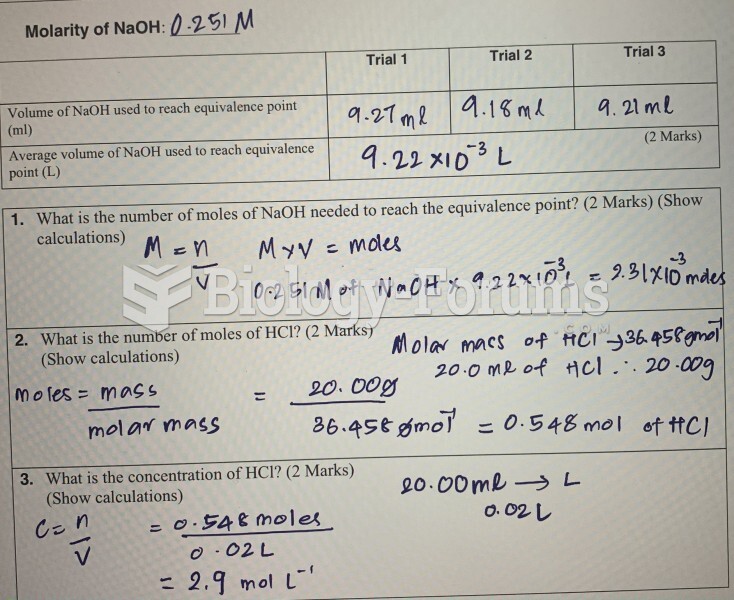|
|
|
Did you know?
On average, the stomach produces 2 L of hydrochloric acid per day.
Did you know?
According to the Migraine Research Foundation, migraines are the third most prevalent illness in the world. Women are most affected (18%), followed by children of both sexes (10%), and men (6%).
Did you know?
There are approximately 3 million unintended pregnancies in the United States each year.
Did you know?
In the United States, congenital cytomegalovirus causes one child to become disabled almost every hour. CMV is the leading preventable viral cause of development disability in newborns. These disabilities include hearing or vision loss, and cerebral palsy.
Did you know?
On average, someone in the United States has a stroke about every 40 seconds. This is about 795,000 people per year.







